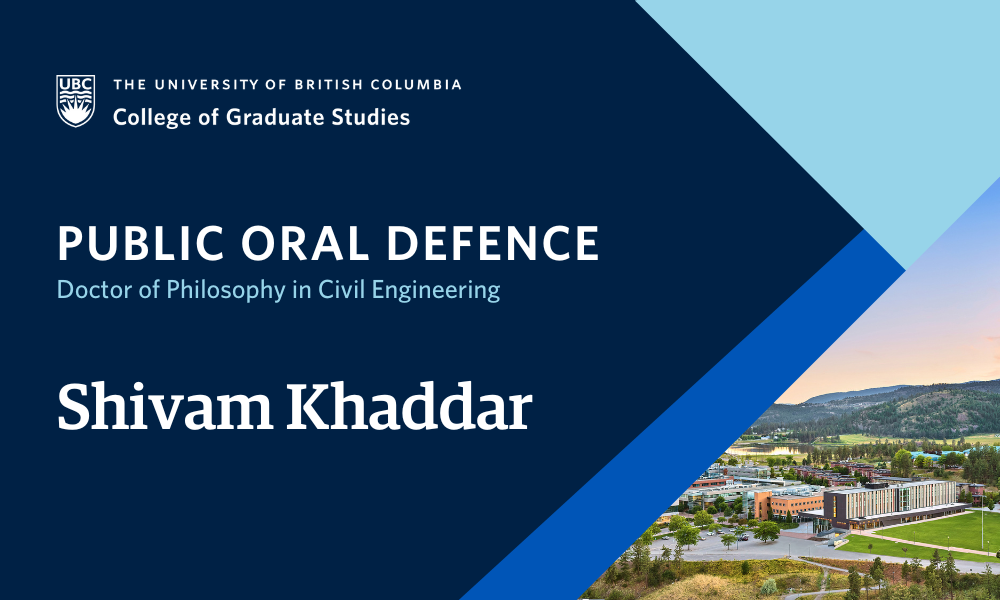
- This event has passed.
Dissertation Defence: Modelling Activity Generation and Activity Scheduling Decisions, and Investigating the Influence of Telecommuting
May 16, 2024 at 9:00 am - 1:00 pm

Shivam Khaddar, supervised by Dr. Mahmudur Fatmi, will defend their dissertation titled “Modelling Activity Generation and Activity Scheduling Decisions, and Investigating the Influence of Telecommuting” in partial fulfillment of the requirements for the degree of Doctor of Philosophy in Civil Engineering.
An abstract for Shivam Khaddar’s dissertation is included below.
Examinations are open to all members of the campus community as well as the general public. Registration is not required for in person exams.
ABSTRACT
The thesis presents novel econometric structures to model daily activity-travel behaviour of an individual including their activity generation and activity scheduling decisions, and their variation based on work arrangement such as telecommuting. The central concept is to adopt advanced modelling techniques to understand how time use decisions such as activity participation, travel decisions such as travel mode choice and land use decisions such as destination choice are interdependent. In the case of activity generation, individual’s choices of activity engagement time allocation, frequency, and their destinations are modelled. For example, a multiple discrete continuous extreme value model with ordered preferences (MDCEV-OP) is formulated to address individual’s activity engagement and duration decisions at a disaggregated episode-level while accounting for activity frequency. Furthermore, a multinomial logit model is utilized to explore destination choices and a logsum based feedback mechanism is adopted to investigate the influence of destination choices on activity generation decisions. In case of activity scheduling decisions, individual’s choices such as activity start time, mode, companionship, and destination location are modelled. A joint discrete choice modelling framework is adopted to investigate these choices and capture interdependencies among them. Additionally, various advanced modelling techniques were adopted to investigate the choice of telecommuting and their influence on activity generation, vehicle kilometre travelled and other teleactivities. In this context, the MDCEV-OP model is utilized to explore variation in activity time use behaviour between telecommuters and non-telecommuters. Moreover, an endogenous switching regression modelling approach is utilized to investigate the decision to become telecommuters and non-telecommuters, and the associated heterogeneity in their travel outcomes such as vehicle kilometre travelled. Lastly, a multivariate ordered probit model is utilized to explore preferences towards teleactivities in the post-pandemic period and capture interrelationship between telecommuting, teleshopping and online food ordering. The model results provide granular level insights on the complexity of individual’s activity-travel decisions and confirm the need to address interdependencies among time use, travel, land use and teleactivities for better behavioural representation. The findings can be used for the development of an operational activity-based model, assisting in improved forecasting of travel demand, and effective testing of transportation policies.